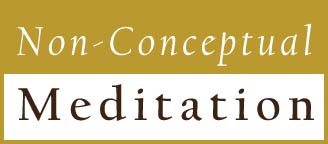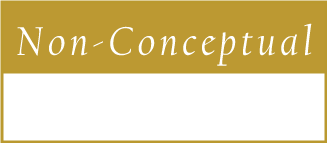Recovering From Abandonment
Mindful-Exposure to Disturbances
The following affirmations support our commitment to assimilate our disturbing memories, and conceptions.
Facilitator: Early misfortunes leave impressions.
Participant: I am the witness of my mental events.
Facilitator: Traumatic impressions bias our perceptions.
Participant: I am the witness of such traumatic impressions.
Facilitator: Emotional deprivation can leave us feeling constantly deprived.
Participant: I am the witness of such feelings of deprivation.
Facilitator: Social exclusion can leave us feeling recurrently rejected.
Participant: I am the witness of such feelings of rejection.
Facilitator: Abandonment can leave us feeling habitually deserted.
Participant: I am the witness of such feelings of desertion.
Facilitator: At times we prefer to escape our fears.
Participant: I accept my experience completely.
Mindful-Exposure to Disturbances
It can be helpful to consider this application of mindful-exposure. However, be mindful that exposure to disturbances can occur naturally during meditation. As we become less defended through the practice of non-conceptual meditations, we are visited by numerous schemas, that include anxious feelings and conceptions. Sometimes we can't really trace distress back to a past situtation. However, we can always see defenses, resentments, regrets, and horrors as they arise, when sitting still. By learning to expose ourselves willingly, we can de-value automatic thoughts and arising scenario that potentially arrest our ability to move along and mature.
 |
 |
Instruction: Sit upright. Cast your gaze toward the ground in front of you. Begin steady breathing. If you are dealing with highly disturbing images, use deep breathing, allowing for full gradual inhalations, and complete gradual expulsions. (See Mindful Exposure To The Large Breath.)
You may initiate therapeutic exposure by opening the image of an upsetting event. Upsetting memories generally chose you, rather than you chosing them. So you are really turning things around, taking charge, so to speak. When you identify an upsetting image, accept and explore it. It can be when you were a child, or as an adult.
When engaged with a disturbing scenario, keep up the breathing, so you are not completely swept away. If the upsetting event is a long past recollection, note how old you are, where you are and what the circumstances are. Note the associated people. This is the courageous exposure phase. You may say to yourself: “This is my experience, and I accept it completely.” Though you are breathing steadily, allow feelings to be emotionally activated. Generally, do not stop breathing steadily.
The assimilation (integration) of the disturbance occurs by successfully exiting and reentering the imagining. So, intermittently, shift your full attention away from the disturbance, fully focusing on your breathing, and sensory experience. Modulate, in other words, to the meditative placement of attention. Some residual traces of the imaging may persist, however primarily focus on your slow complete breaths. Move consciousness towards experintial awareness, rather than conceptual awareness. Then, reenter the disturbance repeating the process at least twice. Always finish an exposure treatment in exeriential mode, en the meditative placement of attention.
In exposing awareness to images of disturbances, you may reflect on the theme of the experience. For example: “I’m being humiliated, dismissed, caught, underestimated, or intimidated. You may also identify themes like being regrettably inconsiderate, or even criminal. These are human schema, share by the species. If painful regret, secondary to your regrettable behavior, surfaces as a primary emotional wound, treat the arising mental event empathically, as if you share being treated regrettably.
You accept the cosmic nature of worldly suffering, and proceed to actualize your life. If you find that you have gravely sinned, let the words of Meister Eckhart lead you on in your practice: "A good man ought so to conform his will to the divine will that he should will whatever God wills. Since God in some way wills for me to have sinned, Ι should not will that Ι had not committed sins; and this is true penitence." Let the wisdom of an enlightened priest guide you to cosmic reconciliation. If apologies are called for, proceed with courage.
As practice ripens, link your recurrent disturbing themes to schema themes. Importantly, you do not want to get stuck in blaming. Attributing an emotional wound to a deprivation is not equivalent to blaming. Being a victim does not necessarily elevate or deepen your condition. Do any of these themes resonate with the story of your life?
Emotional Deprivation from Empathy, Nurturance, or Protection
You are deprived, just as your needs were not met before.
Abandonment
You are deserted and alone, just as you were abandoned before.
Defectiveness
You are defective, just as your faults were painfully exposed before.
Abuse
You are a victim, just as you were abused before.
Subjugation
You yield to pressure, just as you were coerced before.
Failure
You cannot succeed, just as you failed before.
Vulnerability
You are in danger, just as you were helplessly vulnerable before.
Exclusion
You are rejected, just as you were excluded before.
Shame
You are shamed, just as you were shamed before.
Negativity
You are vigilant and worried, just as you were shown a disappointing world.
If your experience does not fit into any of these categories, you may attempt to find another term or a phrase that describes the type of recurrent experience you are having.
Recommendation: watch “Recovering From Abandonment.”
You will find a link to the seft of this page.
Mindful-Relinquishment of Maladjusted Coping Modes
Mindful Exposure to the Present (aka Non-Conceptual Meditation) tends to supplant maladjusted coping modes. However, when we sit still, and reduce conceptualizing, the mind can become alarmed. It then, dispatches maladjusted coping modes to devil your intention to leave your troubled views behind.
Maladjusted over-compensations are insidious, habitual reactions to arising anxiety. By focusing your full attention to the dispassioned contemplation of your maladjusted coping modes, you undermines their capacity sway you.
Instruction: Sit upright. Close your eyes or cast your gaze softly forward. Breathe steadily. Gently still your body, without allowing yourself to become rigid.
Then, trigger your maladjusted coping mode. Actually, you may not need to do anything, except meditate, to trigger a maladjusted coping mode. They don't, at first, like meditation, and they reflexively assert themselves when you select to still your mind. You may already be familar with your non-adaptive mental activities that keep you stuck. Get a strong picture of your over-compensatory behavior. Just focusing on it undermines it. Maldjusted coping modes are insidious like Being Judgmental, Being Right, Being Seductive, Being Impressive, Getting Back or Being Worried.
Use all means necessary to keep the image of the compensatory mode in your mind. Respond compassionately. Focus on the mode as you continue to breathe steadily. If you Seek Acceptance, focus fully on the behavior; if you Seek to Be Exceptional, see yourself seeking to be exceptional; if you rely on Being Judgmental, recall the behavior and the feelings associated with being judgmental. You will experience "growing pains" when you interrupt an unhelpful habit. Becoming acquainted with a maladjusted coping mode results in a cfolateral exposure of the underlying emotional wound that drives the maladjustment. Tolerate any discomfort, accepting your experience completely.
Intermittently cease the contemplation of your maladjusted coping mode, shifting your full attention on to your breath and sensory experience. Suspend all thoughts and imaginings as you focus on your physical presence, releasing mental and physical tension.
Suggestion: Seek a Meditative Supports and Community.


